MAIN COORDINATOR
Dr. (Prof.) Sandhya Sharma
Head-First Year Engineering
Suresh Gyan Vihar University
🎉 Registration for ICAISI 2025 is now open! Submit your article through Microsoft CMT.
All presented and accepted paper will be published in CRC Press, Taylor and Francis (Scoups Indexed)
📆 Submission date has been extended till : April 30th, 2025.
💡 Don't miss the keynote session by our eminent speakers.


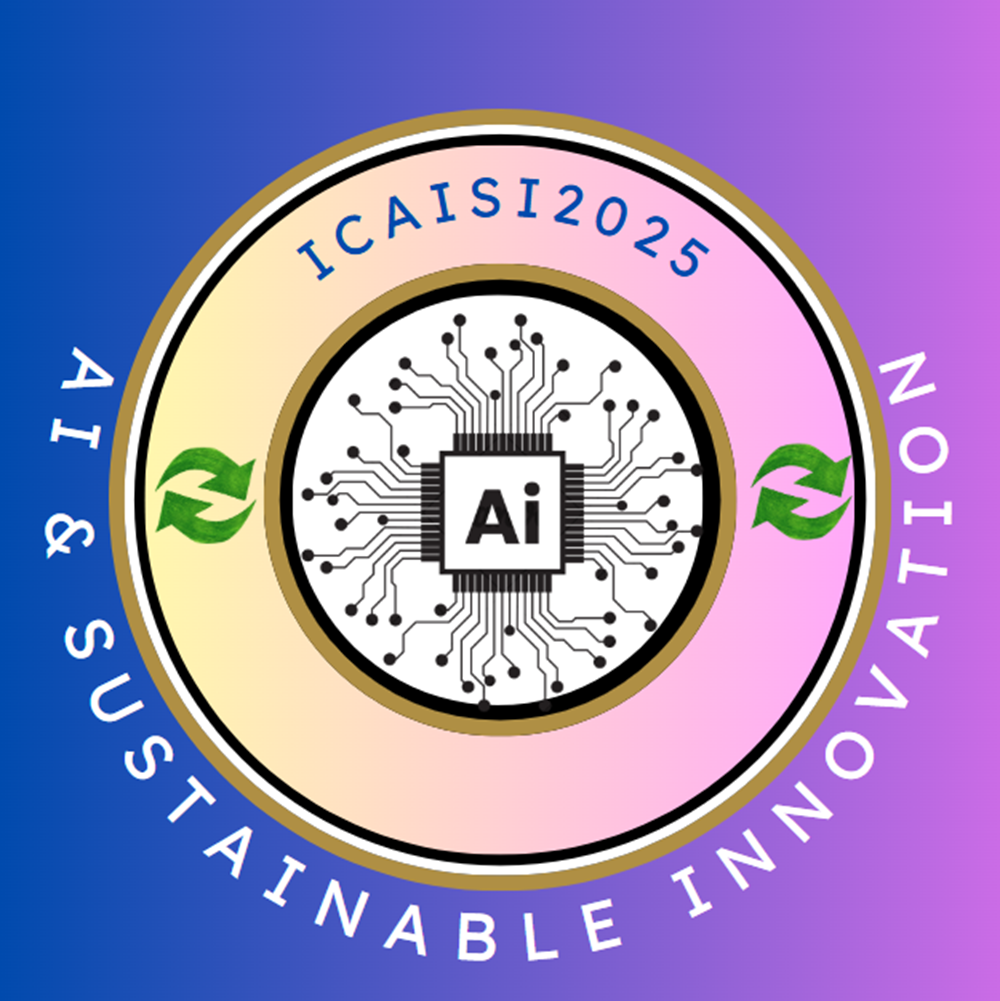


The International Conference on Artificial Intelligence and Sustainable Innovation (ICAISI) 2025 aims to unite researchers, academicians, industry professionals, and policymakers to explore the transformative role of Artificial Intelligence (AI) in addressing global sustainability challenges. This prestigious conference serves as a platform for sharing cutting-edge research, fostering collaborations, and exploring AI-driven solutions for sustainable development. ICAISI 2025 will cover a broad spectrum of topics, including but not limited to AI for energy efficiency, climate change mitigation, smart cities, healthcare, and education, all aligned with the United Nations Sustainable Development Goals (SDGs).
A unique highlight of ICAISI 2025 is its emphasis on interdisciplinary research and real-world applications. The event will feature keynote sessions by world-renowned experts, technical paper presentations, panel discussions, and interactive workshops designed to equip participants with the latest knowledge and skills. Additionally, young researchers and professionals will have the opportunity to showcase their work through poster presentations and networking sessions.
Furthermore, All accepted and presented papers will be included in a ICAISI-2025 book chapter proceeding for publishing in Taylor and Francis (CRC Press) indexed in Scopus*, ensuring global visibility and recognition for contributing authors. By promoting ethical AI practices and equitable technology distribution, ICAISI 2025 aims to ensure that the benefits of AI are accessible to all, fostering a sustainable and inclusive future for generations to come.
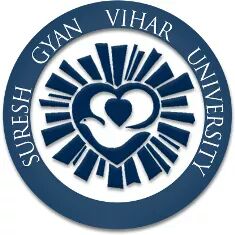
Suresh Gyan Vihar University (SGVU), Jaipur, India, established in 2008 by the Government of Rajasthan, is a UGC-recognized institution with accreditations from AICTE, PCI, ICAR, NCTE, BCI, RCI, and UGC-DEB. The university, spread across 108 acres, has a state-of-the-art academic and residential infrastructure and was honored with the "District Green Champion Award" by MGNCRE in 2021. SGVU holds an "A+" grade accreditation from NAAC, scoring 3.32/4 in its first assessment cycle, and has consistently ranked within the NIRF 101-150 band from 2021 to 2024, with its School of Pharmacy achieving an improved ranking of 49 in 2024.
Committed to academic excellence, SGVU has embraced the New Education Policy-2020 and a choice-based credit system (CBCS) for all programs. The university fosters experiential learning through cutting-edge research centers, incubation hubs, and industry tie-ups with global leaders like Google, Amazon, and Harvard Business Publishing. With ICT-enabled smart classrooms, a robust AI-based Learning Management System, and a fully automated central library, SGVU ensures 24x7 academic support. Its 84 national and international MoUs further enrich research, innovation, and industry collaborations, positioning SGVU as a hub for quality education and entrepreneurial growth.
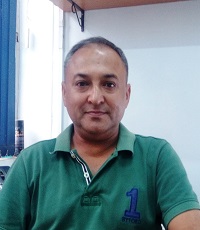
MNNIT Allahabad, Prayagraj
Prof. Dharmender Singh Kushwaha is an esteemed academician at MNNIT Allahabad, with vast expertise in software engineering and AI.

Thapar Institute of Engineering and Technology
Dr. Anil Verma specializes in computer vision and deep learning applications in industry and academia.

Delhi Technological University, New Delhi
Dr. Pawan Singh Mehra focuses on data science and cybersecurity research at DTU, New Delhi.
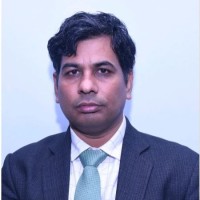
Galgotias University, Greater Noida
Dr. Dhirendra Kumar Shukla is an Associate Professor in the School of Computer Science and Engineering at Galgotias University, Greater Noida, with over 13 years of teaching experience. He holds a Ph.D. (2021) and M.Tech. (2012) from MNNIT Allahabad, and a B.E. (2007) from RGPV Bhopal. His research primarily focuses on cloud computing, blockchain technology, operating systems, and software engineering. Dr. Shukla has published numerous research papers in national and international journals, co-edited a book titled Artificial Intelligence and Information Technologies, and has actively contributed to organizing international conferences and academic events..
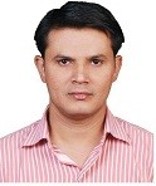
Professor
Imam Mohammad Ibn Saud Islamic University, Riyadh, Saudi Arabia
Dr. Shakir Khan is a Professor in the Information Technology Department at Imam Mohammad Ibn Saud Islamic University (IMSIU), Riyadh, Saudi Arabia. Recognized among the World’s Top 2% Scientists for 2024 by Stanford University and Elsevier, he has over 18 years of teaching, research, and IT experience, including five years at King Saud University. He has published 100+ research papers, authored four books, secured three patents, and supervised numerous master's students. His expertise spans AI, Machine Learning, Cloud Computing, IoT, and Bioinformatics. He has received multiple research grants and excellence awards, contributing actively as an editor, reviewer, and keynote speaker in international conferences.
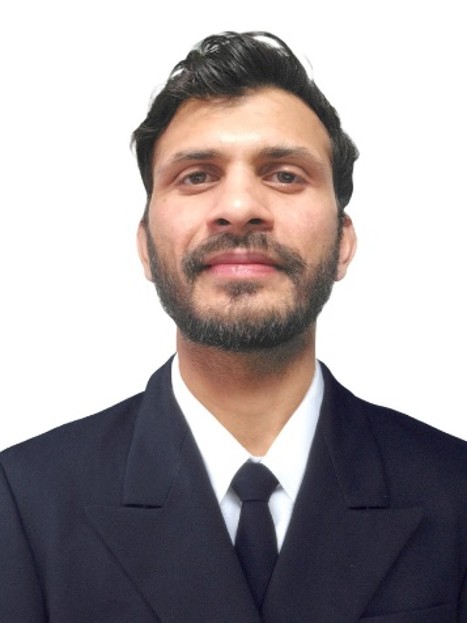
Assistant Professor in Cyber Security
Abertay University, United Kingdom (UK)
Dr. Rathore is working as a Lecturer in the Division of Cybersecurity at Abertay University, UK, and has more than 2 years of working experience as a lecturer at universities based in the UK. He is also an active member of the cyberQuarter team, which is a new £18m cybersecurity research and development centre located at Abertay University. Before joining Abertay, he was a lecturer in cybersecurity at Plymouth University and was associated with the £3 million Research England-supported Cyber-SHIP Lab project. He received a Ph.D. degree from the Graduate School of Computer Science and Engineering at Seoul National University of Science and Technology, Seoul, South Korea. His broad research interests include Cybersecurity, Artificial Intelligence, Blockchain, IoT Security, V2X Communication, CPS, and Machine Learning. Dr. Rathore has published his research outcomes in various top-tier international journals, including IEEE Transactions, IEEE Communication Magazine, IEEE Network, IEEE Consumer Electronics, FGCS, Information Sciences, and IEEE Access. He has also served as a chair, program committee member, or organizing committee chair for many international conferences and workshops, including IEEE and ACM events.

Associate Professor
Majmaah University, Saudi Arabia
Experienced Associate Professor with a demonstrated history of working in the education management industry. Skilled in Research Design, Matlab, Engineering, Mathematica, and Mathematical Modeling. Strong education professional with a Doctor of Philosophy - PhD focused in Applied Mathematics from Harcourt Butler Technical University .
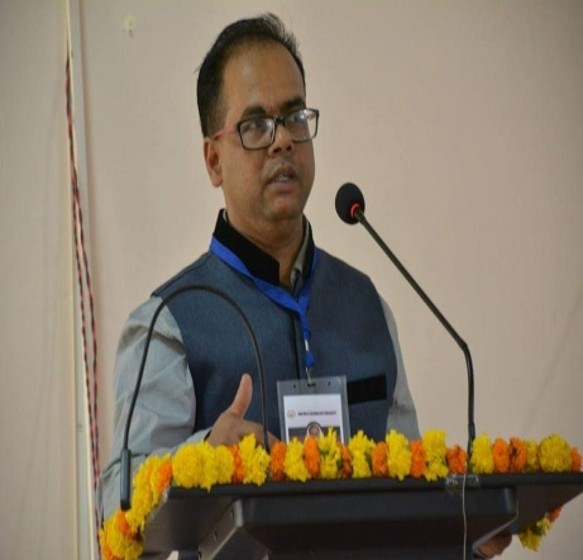
Professor, School of CSE
Shri Mata Vaishno Devi University, Kakryal, Katra
Dr. Baijnath Kaushik is an Associate Professor at the School of Computer Science and Engineering, SMVDU, holding a Ph.D. in Computer Science and Engineering from IIT Dhanbad (ISM). With nearly 8 years of teaching experience and a strong administrative record—including two terms as Head of School—he leads cutting-edge research in medical imaging, sentiment analysis, and biomedical problems. Dr. Kaushik is the principal investigator of a high-end computing AI and Deep Learning Lab project funded at 16.5 Crore and co-investigator on another major project. He has authored numerous journal and conference papers, contributed chapters to Springer volumes, and holds several patents, reflecting his commitment to advancing machine learning and computational intelligence.
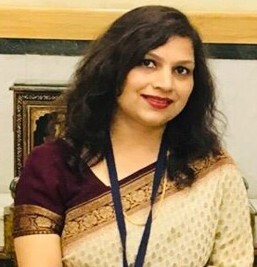
Associate Professor
University Not Available
Profile description not available.
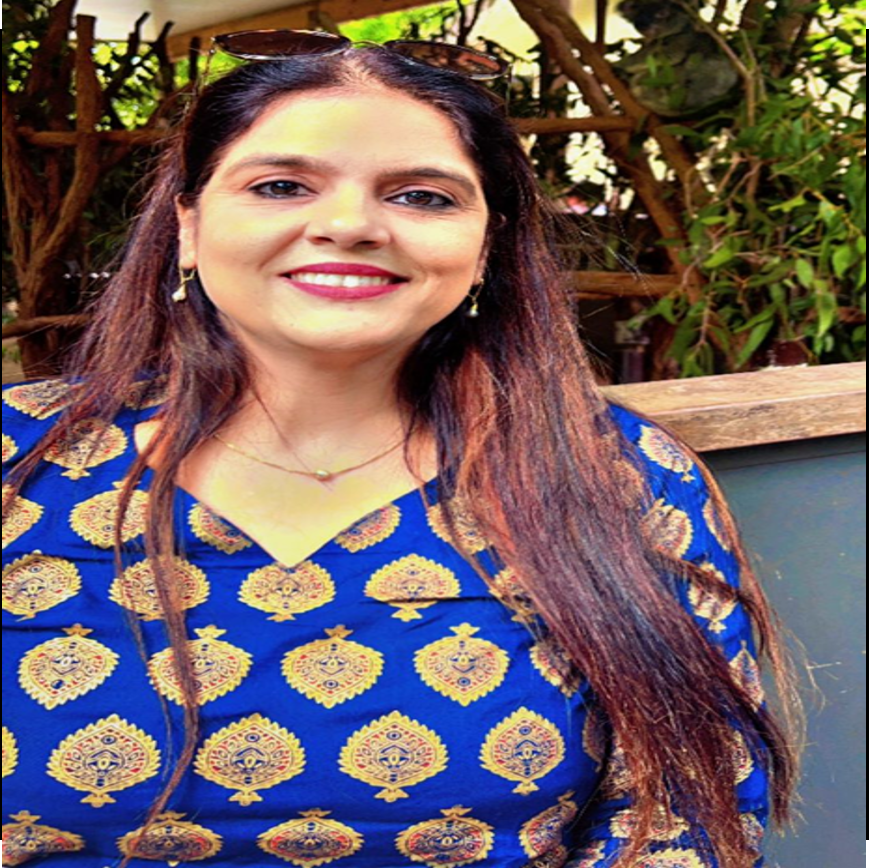
Associate Professor
Jawaharlal Nehru University, New Delhi
Dr. Priya Gupta works as an Associate Professor at Atal Bihari Vajpayee School of Management and Entrepreneurship, Jawaharlal Nehru University, New Delhi. She has also been associated with the University of Delhi, Amity University, and Guru Gobind Singh Indraprastha University, Delhi, with over 20 years of teaching experience for undergraduate, postgraduate, and Ph.D. students. Prior to teaching, she worked with Indian Railways (Northern Zone) in various capacities for more than 5 years. Her educational qualifications include MCA, M.Phil (Computer Science), JRF (Computer Science and Application), and a Ph.D. in Management from Birla Institute of Technology (Mesra), Ranchi. She has authored and edited several books, including "Innovation in Payment Systems – An Approach towards Cashless Mandis" and "Banking the Unbanked- A Step towards Financial Inclusion in Indian Mandis," "Recommender System with Machine Learning and Artificial Intelligence: Practical Tools and Applications in Medical and Agricultural Domains," "Innovative Minds – Technocrats with Vision" (Unfolding the dimensions of Compiler Design and Microprocessor) - Volume I, and "Innovative Minds – Technocrats with Vision" (Unfolding the dimension of Artificial Intelligence and Information Security) - Volume – II, Introduction to Blockchain, and Big Data Analytics as a text book for the SEC courses of University of Delhi to name a few. She has presented and published more than 40 research papers in National and International Journals of repute and written more than 20 chapters in edited books. Her research interests lie in Data Science, Artificial Intelligence, Machine Learning, Theory of Computation, Compiler Design, Data Mining, Customer Relationship Management Systems, and Management Information Systems. She has conducted more than 50 invited sessions under MMTTC / UGC-HRDC and at several institutions of repute.

ASSOCIATE PROFESOR
UNIVERSITY PUTRA MALAYSIA
Assoc. Prof. Razali Yaakob received the Bachelor Degree in Computer Science in 1996 and Master in Computer Science from in 1999, from Universiti Putra Malaysia, and PhD from University of Nottingham, United Kingdom in 2008. Currently, he is a lecturer at the Faculty of Computer Science and IT, Universiti Putra Malaysia, since 1999. His research areas include artificial neural network, pattern recognition, evolutionary computation and deep learning. He is a member of the Intelligent Computing Group at the faculty.

Senior Scientist / Prof
Institute for Energy Technology, Halden, Norway
Dr. Sanjay Misra, Senior Scientist, Institute for Energy Technology, Halden, Norway, sanjay.misra@ife.no Biography: Sanjay Misra, a distinguished Senior Member of IEEE and ACM Distinguished Lecturer (2021–2024), is a Senior Scientist at the Institute for Energy Technology (IFE) in Halden, Norway. He holds a Ph.D. in Information and Knowledge Engineering from the University of Alcala, Spain, and an M.Tech. in Software Engineering from MLN National Institute of Technology, India. Dr. Misra specializes in Applied Informatics, focusing on Software Engineering, Cyber Security, Health Informatics, and AI-based Intelligent Systems. Ranked among the top 2% of scientists globally by Stanford University for five consecutive years and 6th in Norway (2024), he has received multiple accolades, including the 2014 IET Software Premium Award. Dr. Misra serves as Editor-in-Chief of the International Journal of Human Capital & Information Technology Professionals (IF: 1.9) and is an editor for respected journals like Nature: Scientific Reports (IF: 4.996) and Elsevier's Alexandria Engineering Journal (IF: 6.8, Q1). He has chaired major IEEE and Springer conferences, including the first dedicated conference on Digital Sovereignty (Elsevier) ICDS 2024 @ Oslo, edited numerous special issues, and authored over 100 books and proceedings. A recognized global speaker, he has delivered over 100 keynotes across more than 60 countries.
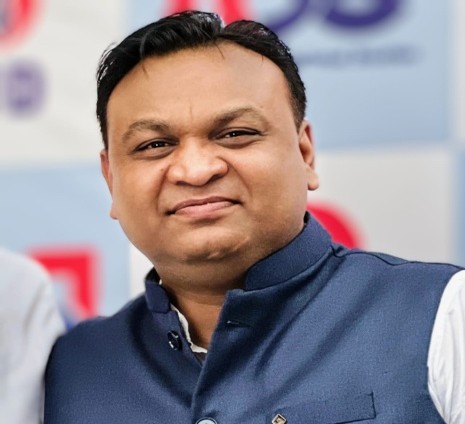
Associate Professor
GGSIP University
Dr. Ankit Agarwal, an Associate Professor at ADGIPS under Guru Gobind Singh Indraprastha University, Dwarka. With over 15 years of experience, I currently serve as the Head of the Department of Information Technology. Throughout my academic career, I have been actively involved in research and innovation, holding six patents, including ISPT-4-G Mobile Banking, an Intelligent and Secured Payment Transfer System using 4G Mobile Banking, and an Enterprise IoT-based Application Development Platform leveraging Machine and Deep Learning. My research contributions include Systematic Digital Forensic Investigation Models and Smartphone Forensic Investigation Process Models, along with numerous publications in esteemed national and international journals. My areas of expertise span across Cryptography & Network Security, Computer Networks, Digital Defense, Computer Crime Investigation & Forensics, and Machine Learning. I remain committed to advancing knowledge and fostering innovation in these fields.
Chairman
Suresh Gyan Vihar University
Chief Mentor
Suresh Gyan Vihar University
Director Shodh
Suresh Gyan Vihar University
Director
Suresh Gyan Vihar University
President
Suresh Gyan Vihar University
Pro President
Suresh Gyan Vihar University
Research Chair
Suresh Gyan Vihar University
Registrar
Suresh Gyan Vihar University
Provost & Director HR
Suresh Gyan Vihar University
Professor & Head- Computer Science and Engineering
Suresh Gyan Vihar University
Principal, School of Engineering & Technology
Suresh Gyan Vihar University
Head-First Year Engineering
Suresh Gyan Vihar University
Associate Professor
Galgotias University
Associate Professor
Galgotias University
Head-First Year Engineering
Suresh Gyan Vihar University
Chief Operating Officer
Suresh Gyan Vihar University
HOD Mechanical Engineering
Suresh Gyan Vihar University
Head- Civil Engineering
Suresh Gyan Vihar University
Associate Dean Research
Suresh Gyan Vihar University
Associate Dean Academics
Suresh Gyan Vihar University
Dean Agriculture
Suresh Gyan Vihar University
Head-Electrical Engineering
Suresh Gyan Vihar University
Head-Diploma Engineering
Suresh Gyan Vihar University
Professor-C3W
Suresh Gyan Vihar University
Dean -ISBM
Suresh Gyan Vihar University
Principal-Applied Science
Suresh Gyan Vihar University
HOD Computer Application
Suresh Gyan Vihar University
Assistant Professor
Galgotias University, Greater Noida
Assistant Professor
Vishwakarma University, Pune
Assistant Professor
Galgotias University,Greater Noida
Assistant Professor
Bharati Vidyapeeth University, DET, Navi Mumbai
Assistant Professor
K. J. Somaiya Institute of Technology, Sion, Mumbai
Assistant Professor
Suresh Gyan Vihar University
Assistant Professor
Suresh Gyan Vihar University
Assistant Professor
Suresh Gyan Vihar University
Assistant Professor
Suresh Gyan Vihar University
Assistant Professor
Suresh Gyan Vihar University
Assistant Professor
Suresh Gyan Vihar University
Assistant Professor
Suresh Gyan Vihar University
Assistant Professor
Suresh Gyan Vihar University
Assistant Professor
Suresh Gyan Vihar University
Assistant Professor
Suresh Gyan Vihar University
Assistant Professor
Suresh Gyan Vihar University
Assistant Professor
Suresh Gyan Vihar University
Assistant Professor
Suresh Gyan Vihar University
Assistant Professor
Suresh Gyan Vihar University
Assistant Professor
Suresh Gyan Vihar University
Assistant Professor
Suresh Gyan Vihar University
Assistant Professor
Suresh Gyan Vihar University
Assistant Professor
Suresh Gyan Vihar University
Assistant Professor
Suresh Gyan Vihar University
Assistant Professor
Suresh Gyan Vihar University
Assistant Professor
Suresh Gyan Vihar University
Assistant Professor
Suresh Gyan Vihar University
Professor
Suresh Gyan Vihar University
Assistant Professor
Vishwakarma University, Pune
Assistant Professor
Bharati Vidyapeeth University, DET, Navi Mumbai
Assistant Professor
Bharati Vidyapeeth University, DET, Navi Mumbai
Assistant Professor
Bharati Vidyapeeth University, DET, Navi Mumbai
Professor
Suresh Gyan Vihar University
Professor
Suresh Gyan Vihar University
Assistant Professor
Suresh Gyan Vihar University
Assistant Professor
Suresh Gyan Vihar University
Associate Professor
Suresh Gyan Vihar University
Associate Professor
Suresh Gyan Vihar University
Advisory Member
LNMIIT
Advisory Member
MNIT
Advisory Member
MNIT
Advisory Member
MNIT
Advisory Member
IIIT Durgapura
Advisory Member
Amity Noida
Assistant Professor
Suresh Gyan Vihar University
Assistant Professor
Suresh Gyan Vihar University
Professor
Suresh Gyan Vihar University
Head-First Year Engineering
Suresh Gyan Vihar University
ICAISI 2025 invites researchers and professionals to explore cutting-edge advancements in AI and Sustainable Development. Below are the specialized tracks of the conference.All article must be submitted to Microsoft CMT. The Microsoft CMT service is used for managing the peer-review process for this conference. This service is provided for free by Microsoft and they bore all expenses, including cost for Azure cloud services as well as software development and support.
About Track: The International Conference on Artificial Intelligence and Sustainable Innovation 2025 serves as a global platform for researchers, industry experts, and policymakers to explore the transformative role of Artificial Intelligence (AI) in driving sustainable innovation. As the world faces pressing challenges in climate change, urbanization, energy efficiency, and digital transformation, AI has emerged as a key enabler in fostering sustainability, efficiency, and resilience across multiple domains. This General Track focuses on the broad impact of AI-driven sustainable solutions across industries, bridging the gap between cutting-edge research and real-world applications.
About Track: The AI for Smart Computing and Communication Sustainability track focuses on leveraging artificial intelligence (AI) and emerging computational paradigms to enhance efficiency, sustainability, and intelligence in next-generation communication networks and computing infrastructures. With the rapid advancements in high-speed networks like 6G, AI-driven methodologies are essential for managing the complexity of fog computing, edge computing, and IoT-based systems.
About Track: The AI for Smart Cities & Urban Sustainability track focuses on the integration of artificial intelligence (AI) in urban environments to enhance efficiency, sustainability, and the overall quality of life. As cities grow and urbanization accelerates, AI-driven solutions are becoming essential for managing resources, optimizing infrastructure, and ensuring sustainable development. This track explores AI applications in transportation, energy management, environmental monitoring, and smart governance.
About Track: The AI in Healthcare & Medical Sustainability track explores the transformative impact of Artificial Intelligence (AI) in revolutionizing healthcare systems, enhancing patient care, and promoting sustainable medical practices. AI-driven innovations in predictive diagnostics, personalized medicine, medical imaging, and drug discovery are improving efficiency, reducing costs, and enabling early disease detection. This track focuses on AI-powered robotic surgeries, intelligent health monitoring, telemedicine, and AI-driven healthcare analytics to optimize medical resource utilization and accessibility.
About Track: The AI Ethics, Fairness & Governance track focuses on the critical need for responsible AI development, deployment, and regulation to ensure transparency, accountability, and inclusivity in AI-driven systems. As AI continues to influence decision-making across sectors, this track explores key challenges in bias mitigation, explainability, privacy protection, and ethical AI frameworks that promote fairness and trust. It examines AI governance policies, regulatory compliance, algorithmic transparency, and the role of AI in social justice, ensuring equitable outcomes for diverse communities.
About Track: The AI in Renewable Energy & Smart Grids track explores the transformative role of Artificial Intelligence (AI) in optimizing renewable energy generation, distribution, and consumption for a more sustainable future. AI-driven solutions are revolutionizing smart grids, energy forecasting, demand response, and grid resilience, enabling real-time decision-making and improving energy efficiency. This track focuses on AI applications in solar and wind energy prediction, automated grid balancing, intelligent energy storage management, and fault detection to enhance the reliability of renewable energy sources.
About Track: The AI for Cybersecurity & Data Protection track focuses on the critical role of Artificial Intelligence (AI) in securing digital infrastructures, protecting sensitive data, and mitigating cyber threats in an increasingly connected world. AI-driven cybersecurity solutions, such as threat detection, anomaly detection, automated incident response, and predictive analytics, are revolutionizing how organizations identify, prevent, and respond to cyberattacks in real time. This track explores AI-powered fraud detection, biometric authentication, privacy-preserving AI, and adversarial AI defense mechanisms, ensuring robust data security in cloud computing, IoT networks, and critical infrastructures.
About Track: The AI & Edge Computing for IoT track explores the fusion of Artificial Intelligence (AI) and Edge Computing to enhance the efficiency, responsiveness, and sustainability of Internet of Things (IoT) ecosystems. By processing data closer to the source, AI-driven edge computing reduces latency, bandwidth usage, and energy consumption, enabling real-time decision-making for smart cities, healthcare, industrial automation, and connected vehicles. This track focuses on AI-powered edge analytics, federated learning for IoT security, intelligent sensor networks, and energy-efficient edge AI models, ensuring scalable and adaptive IoT solutions.
About Track: The AI in Business & Finance for Sustainable Growth track focuses on the transformative role of artificial intelligence in driving economic sustainability, financial inclusion, and responsible corporate strategies. AI-powered solutions, such as predictive analytics, algorithmic trading, fraud detection, and risk management, are reshaping financial markets and business operations, improving efficiency while minimizing environmental and social impacts. This track explores AI applications in green finance, ESG (Environmental, Social, and Governance) investing, AI-driven financial forecasting, and sustainable supply chain management, ensuring businesses make data-driven, ethical, and long-term sustainable decisions.
About Track: The AI for Sustainable Education & Digital Learning track explores how artificial intelligence is transforming education by enhancing accessibility, personalization, and sustainability in learning environments. AI-driven technologies, such as adaptive learning systems, intelligent tutoring, and automated content generation, are revolutionizing digital education by providing personalized learning experiences tailored to individual student needs. This track also examines AI-powered virtual classrooms, learning analytics, and AI-driven assessments, which help optimize educational outcomes while promoting inclusivity and sustainability.
About Track: The AI in Transportation & Mobility track focuses on the transformative impact of Artificial Intelligence (AI) on modern transportation systems. As global mobility demands increase, AI-driven innovations are revolutionizing how we move people and goods, enhancing efficiency, safety, and sustainability. This track explores how AI is shaping the future of autonomous vehicles, intelligent traffic management, smart logistics, and sustainable mobility solutions.
The Call for Invited Special Session Tracks at ICASI-2025 invites researchers, academicians, and industry experts to propose specialized tracks focusing on innovative and emerging areas of Artificial Intelligence (AI) and Sustainable Innovation. These sessions aim to highlight cutting-edge research, technological advancements, and real-world applications of AI in addressing global sustainability challenges such as climate change, smart infrastructure, healthcare, renewable energy, and ethical AI. Organizers are encouraged to design sessions that foster interdisciplinary collaboration, engaging discussions, and knowledge exchange among experts. Proposals should include session themes, objectives, potential speakers, and expected contributions to the field. Interested contributors can submit their proposals in the given format Proposal Application through the email icaisi.2025@gmail.com contactus@icaisi.in before the submission deadline.
About Track: The rapid evolution of futuristic technologies, including artificial intelligence, quantum computing, 5G communication, and blockchain, is transforming industries at an unprecedented pace. Recent advancements have paved the way for smarter automation, enhanced cybersecurity, and seamless human-machine collaboration. However, significant challenges remain, such as ethical concerns in AI decision-making, data privacy risks, the integration of emerging technologies into legacy systems, and the need for sustainable innovation.
About Track: This special track aims to provide a platform for researchers, practitioners, and industry experts to share their insights on leveraging AI to address sustainability challenges. The primary objectives of this track are to discuss recent advancements, promote interdisciplinary collaboration, and showcase innovative solutions for sustainable development.
About Track: The rapid advancement of Artificial Intelligence (AI) has revolutionized industries, economies, and societies, but it has also introduced unprecedented challenges in the realm of cybersecurity and digital forensics. As AI technologies become more sophisticated, they are increasingly being weaponized by cybercriminals to launch highly targeted, scalable, and evasive attacks. From deepfakes and adversarial machine learning to AI-powered malware and automated phishing campaigns, the threat landscape is evolving at an alarming pace. At the same time, AI is emerging as a powerful tool for cybersecurity professionals and forensic investigators, enabling them to detect, analyze, and mitigate these threats with greater speed and accuracy.
About Track: AI-driven visualization simplifies complex datasets, leading to better decision-making across industries. Medical AI improves diagnostic accuracy and supports personalized healthcare. Corporate AI enhances business intelligence, financial risk analysis, and operational efficiency. Social media analytics helps detect trends, misinformation, and audience behavior.
About Track: AI for Cognitive and Computational Intelligence involves using artificial intelligence to model, enhance, and automate cognitive processes such as learning, reasoning, perception, and problem-solving. This interdisciplinary field brings together machine learning, deep learning neuroscience, psychology, and computational theories to develop systems that mimic human intelligence or go beyond human capabilities in problem-solving. Computational intelligence involves metaheuristics algorithms for managing real-time applications in terms of image analysis and processing in healthcare, image, agriculture, biometrics, cyber networks, education, hate detection and many more.
About Track: New Age Technology for society 5.0 approach is the rapidly emergent technology in Computer Engineering and medical domains is among the best application challenges, providing future benefits in improved disease predictions system and medical diagnoses system. New age Technology can predicts different patterns associated with diseases and physical condition of patient by analyzing large available healthcare patient dataset. New Age Technology can help increase healthcare access in developing countries and predicting correct diagnosis and treatment for various diseases. Biomedical and health care informatics applies principles of computer science and engineering to the advancement of public health, patient care and health professions education. This multidisciplinary field works on healthcare information technologies (HIT), and involves the computer, cognitive, and social sciences.
About Track: The special track Artificial Intelligence with Data Science Techniques in Real-World Applications focuses on leveraging AI-driven methodologies and data science approaches to solve practical challenges across various domains. This track explores the integration of machine learning, deep learning, and statistical techniques with real-world datasets to enhance decision-making, automation, and predictive analytics. Key topics include data preprocessing, model optimization, interpretability, and ethical considerations in AI. Applications span industries such as healthcare, finance, manufacturing, and smart cities, demonstrating how AI-powered insights drive innovation and efficiency in real-world scenarios.
About Track: The integration of Artificial Intelligence (AI), Big Data, and Quantum Computing is transforming Intelligent E-Commerce for personalized and secure shopping experiences. This special session will explore advancements in AI based n recommendation engines, conversational AI, and real-time big data processing for predictive consumer insights. Key topics include AI-based inventory management and automated warehouses, optimizing supply chains for efficiency. Additionally, the session will highlight Quantum Computing’s role in accelerating machine learning for retail, enabling ultra-fast data processing, and enhancing security with quantum-based encryption for secure transactions.
About Track: This special session focuses on the ethical challenges and human-centric design of AI systems, ensuring they align with societal values. It will explore fairness, transparency, accountability, and trust in AI, fostering interdisciplinary discussions among researchers, practitioners, and policymakers.
About Track: This special session explores recent advancements in Artificial Intelligence (AI), Machine Learning (ML), and Cloud Computing, focusing on their applications in data analytics and image intelligence. It aims to bring together researchers and industry experts to discuss scalable AI-driven solutions, deep learning techniques, and cloud-based frameworks that enhance intelligent computing. Aligned with the theme of "Artificial Intelligence and Sustainable Innovation," the session emphasizes sustainable and impactful AI applications in healthcare, smart cities, and automation. Key topics include AI-powered data mining, deep learning for image analysis, cloud-integrated AI models, and energy-efficient computing strategies. By fostering discussions on these emerging trends, the session seeks to drive innovation and sustainability in intelligent computing.
About Track: The fusion of Natural Language Processing (NLP) and Computer Vision (CV) is transforming AI, enabling machines to understand and connect both text and images effectively. This session explores how combining NLP and CV can solve real-world challenges while promoting sustainability, inclusivity, and ethical AI. Key topics include multimodal intelligence, contextual understanding, and AI-driven decision-making, with applications in healthcare, education, smart cities, and environmental monitoring. The session will highlight the latest advancements in Vision-Language Models (VLMs), transformer architectures, and generative AI, showcasing their role in image captioning, text-to-image generation, and video analysis for accessibility, medical diagnostics, and sustainable urban development.
About Track: The healthcare sector is looking to improve the sustainability of the system by implementing IoT and artificial intelligence (AI) to augment patient outcomes and improve workflow efficiencies. For instance, the objective of IoT is to improve outcomes through remote patient monitoring. Remote patient monitoring devices will record vital signs such as heart rate and blood pressure. Data generated by such devices is analysed utilizing machine learning and AI to help identify possible risks to health and provide personalized treatment for the patient, if warranted, thus improving chronic disease management and reducing preventable hospital readmissions. Another use of AI in conjunction with IoT devices is in the data being collected in real time; along with providing early warning of abnormalities, it can also create personalized patient care. AI algorithms can improve diagnostic and predictive analytics on the data collected, providing evidence-based decision-making processes for the healthcare professional. Sustainability in healthcare involves reducing operational expenses and improving resource allocation. An example of the application of IoT is current examples of inventory management and asset tracking that identify waste and increase operational efficiency. More broadly the introduction of edge computing could speed processing time, resulting in less latency and quicker real-time decision making. As with anything, there are challenges to realizing the potential of these technologies, including developing standards and processes that address data security, data privacy, cyber security, and infrastructure issues. However, the convergence of these technologies has the potential to bring unprecedented change to the delivery of health services to make them more sustainable, resilient, and responsive.
About Track: This session explores the integration of Rough Set Theory, Soft Computing, and Quantum Computing for intelligent decision-making, optimization, and cybersecurity. It is widely known and proven that Rough Sets handle uncertainty, while Fuzzy-Rough Hybrid approaches enhance data analysis and classification. Swarm Intelligence optimizes AI and robotics by mimicking natural behaviours. Now in recent years, it has been observed that Quantum Computing is revolutionizing AI and Machine Learning, offering faster computation and pattern recognition. Recent research in Quantum-Inspired Optimization in Soft Computing provides powerful solutions for complex problem-solving. The emergence of Hybrid Quantum-Soft Computing Architectures is enhancing AI-driven applications with improved efficiency. Additionally, Cybersecurity is also evolving with Quantum Cryptography and Soft Computing, ensuring secure data transmission and protection against cyber threats.
2nd April 2025
20th April 2025
30th April 2025
30th April 2025
10th May 2025
20th May 2025
📧 For any queries, please contact us at icaisi.2025@gmail.com contactus@icaisi.in
| Delegates/ Authors | Indian | Foreign |
|---|---|---|
| Early Regular Registration Fee (Max 6 Pages) | ||
| Students | 7500 INR | 250 USD |
| Research Scholar/ Academics | 8500 INR | 300 USD |
| Industries | 10000 INR | 400 USD |
| Late Regular Registration Fee (Max 6 Pages) | ||
| Students | 8000 INR | 350 USD |
| Research Scholar/ Academics | 9000 INR | 400 USD |
| Industries | 12000 INR | 450 USD |
| Registration Fee for Participants* | ||
| Students | 1000 INR | 100 USD |
| Research Scholar/ Academics | 2000 INR | 150 USD |
| Industries | 5000 INR | 200 USD |
|
||
Authors must follow the Taylor & Francis template for typesetting and content formatting. Download the official templates below:
6 (Six)
6 (Six)
10% Maximum
0% Allowed
Strict Double-Blind
📌 Note: All accepted and presented papers will be published in the ICAISI-2025 Conference Proceedings, indexed in Taylor & Francis (Scopus* Indexed).
Craft a clear and descriptive title for your paper. Write an informative abstract that summarizes the main objectives, methods, results, and conclusions of your research.
Include a list of keywords that accurately represent the content of your paper. These keywords help index your paper for search engines and databases.
Provide a comprehensive introduction that outlines the background, significance, and objectives of your research. Clearly state the research questions or hypotheses.
Describe the methodology and techniques used in your study in sufficient detail to allow replication. Include information on data collection, analysis, and any experimental procedures.
Present your findings clearly and concisely. Use tables, figures, and graphs where appropriate to enhance understanding.
Interpret your results and discuss their implications. Compare your findings with existing literature and explain any limitations or future directions for research.
Summarize the main findings of your study and restate the importance of your research in the broader context.
Cite all sources used in your paper accurately. Follow the citation style specified by the journal or conference guidelines.
Ensure your research complies with ethical standards, including obtaining necessary permissions for data collection and respecting participant confidentiality.
Proofread your paper carefully for grammar, spelling, and formatting errors. Consider seeking feedback from colleagues or mentors before submission.

📧 For any queries, please contact us at icaisi.2025@gmail.com contactus@icaisi.in